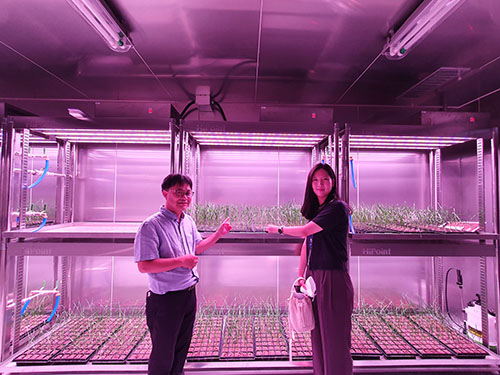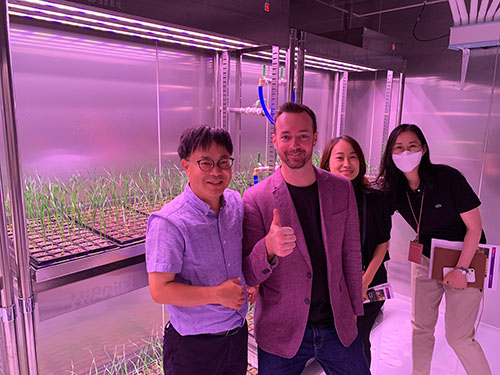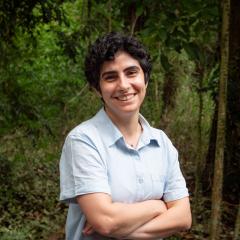Researchers say the power of light is the key to enable breeders to grow up to five generations a year of winter wheat and winter barley.
The breakthrough method known as ‘speed vernalisation’ was developed in collaboration between three laboratories at the University of Leeds in the UK, the Rural Development Administration in South Korea and The University of Queensland in Australia.
Dr Dongjin Shin from the Korean team said it was found that warmer temperatures and an extended photoperiod could be used to dramatically cut the length of vernalisation time.
“We have reduced the vernalisation time from eight weeks to just four weeks and this enables plant breeders to grow up to five generations of winter cereals per year,” Dr Shin said.

“A key step is to place the seeds on the surface instead of covering them with soil.
“We don’t fully understand how it works but exposing the seed to light is critical.”
New technologies can help develop crops with enhanced productivity and climate resilience, but a major bottleneck in the breeding process is the time required to grow a plant generation.
Recent advances in speed breeding protocols now allow breeders to grow up to six generations a year for a range of species but are less effective for winter crops with a vernalisation requirement.
Winter wheat and barley require six to ten weeks in low-temperature weather conditions before they will transition to reproductive development.
The UQ research team was led by Associate Professor Lee Hickey and performed experiments on winter barley.
“Genebanks around the world contain preserved seeds for many diverse accessions that carry desirable traits like disease resistance and drought tolerance,” Dr Hickey said.
“However, many cycles of backcrossing are needed to effectively transfer the traits into modern crops.
“The speed vernalisation method will help researchers to fast-track these important traits into elite winter wheat and barley varieties.
“The method works for a high degree of genetic diversity, and the fact we have it working in labs across three different continents, shows it is a robust technique.”

Dr Laura Dixon’s laboratory at the University of Leeds studied the expression of key genes in the vernalisation pathway during the speed vernalisation process.
“Gene expression patterns were quite unexpected and this highlights gaps in our understanding of the regulation of vernalisation and flowering time in cereals,” Dr Dixon said.
“More research is needed to determine the underlying mechanisms that underpin the plants’ strange response to light during vernalisation.”
Prior to peer review, the researchers made the method available as a preprint online.
Dr Dixon said a number of breeding companies around the world had trialled the method and are in the process of adopting the technique to accelerate their programs, including Australian company, InterGrain.
InterGrain Glasshouse Manager Dr Frederico Ribalta said the company had success with the new method.
“It has enabled us to greater accelerate the generation turnover of cereal crops with varying vernalisation requirements,” Dr Ribalta said.
“We’ve found the technology to be scalable and an essential tool in the breeding pipeline for improved genetic gain.”
The research was published in Molecular Plant (https://doi.org/10.1016/j.molp.2022.06.012).
Images are available via Dropbox.
Researchers: UQ Associate Professor Lee Hickey, l.hickey@uq.edu.au, +61 408 210 286; The University of Leeds, Dr Laura Dixon, L.Dixon2@leeds.ac.uk; RDA South Korea, Dr Dongjin Shin, jacob1223@korea.kr.
Media: QAAFI communications, Natalie MacGregor, n.macgregor@uq.edu.au, +61 (0)409 135 651.
The Queensland Alliance for Agriculture and Food Innovation is a research institute at The University of Queensland supported by the Queensland Government via the Queensland Department of Agriculture and Fisheries.



